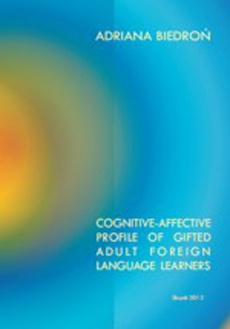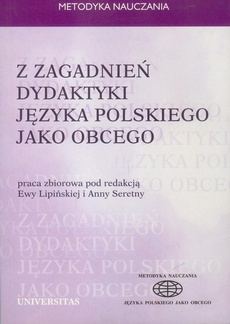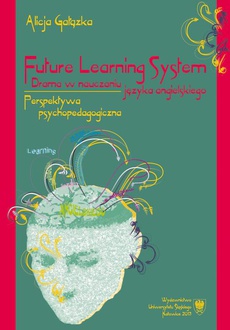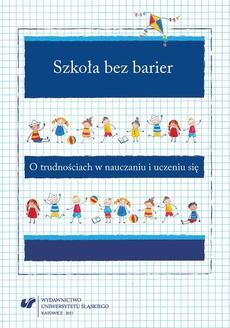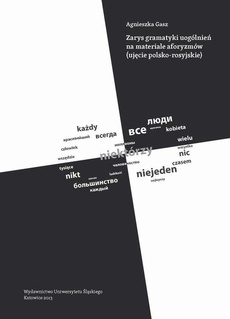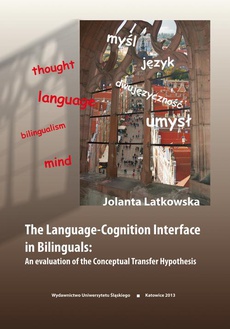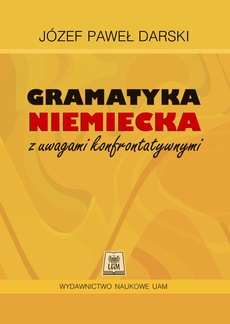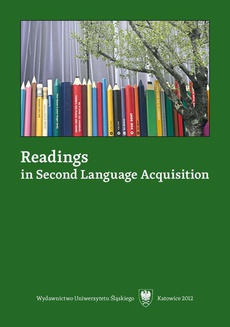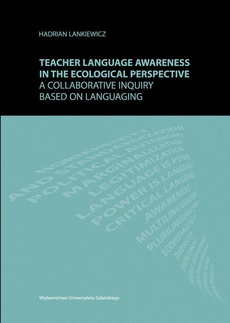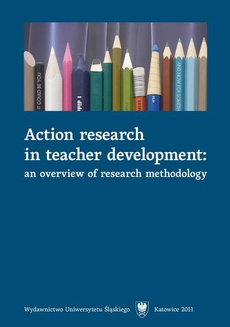POLECAMY
Reflectivity in Pre-Service Teacher Education: A Survey of Theory and Practice
Autor:
Wydawca:
Format:
pdf, ibuk
Książka Danuty Gabryś-Barker to monografia poświęcona miejscu refleksyjności oraz – mającego w niej swe źródło – refleksyjnego sposobu nauczania w praktyce przyszłych i obecnych nauczycieli języka obcego. Praca stanowi zarówno ważną pozycję z dziedziny dydaktyki języka obcego, jak i istotną, opartą na doświadczeniu dydaktycznym, wypowiedź w sprawie przeciwdziałania wypaleniu zawodowemu nauczycieli.
Rozdział pierwszy poświęcony jest charakterystyce nauczycieli jako grupy zawodowej, w szczególności nauczycieli początkujących. W rozdziale drugim Autorka podejmuje próbę zdefiniowania refleksyjności i refleksyjnego nauczania w celu określenia ich miejsca w rozwoju zawodowym nauczyciela. Rozdziały trzeci i czwarty opisują narzędzia rozwoju refleksyjności: pamiętnik nauczyciela oraz tzw. zdarzenia krytyczne (critical incidents) jako istotny element refleksji.
Ostatni rozdział pracy przedstawia badanie przeprowadzone przez Autorkę na grupie słuchaczy nauczycielskiego kolegium języków obcych – przyszłych nauczycieli języka angielskiego. Celem badania było wykształcenie umiejętności refleksyjnego podejścia do nauczania już w początkowym etapie rozwoju zawodowego nauczyciela. Podstawę badania stanowią tu dla Autorki pamiętniki pisane przez słuchaczy, w których identyfikowali i interpretowali zdarzenia krytyczne, jakie zaszły w klasie uczniów podczas odbywania przez nich rocznej praktyki pedagogicznej w szkole. Wnioski z badań są bardzo optymistyczne i ukazują rozwój samoświadomości młodych nauczycieli oraz wzrost ich motywacji do nauczania po wprowadzeniu modelu nauczania refleksyjnego, opartego na prowadzeniu pamiętnika nauczyciela.
| Rok wydania | 2012 |
|---|---|
| Liczba stron | 314 |
| Kategoria | Dydaktyka języków obcych |
| Wydawca | Uniwersytet Śląski |
| ISBN-13 | 978-83-8012-556-8 |
| Numer wydania | 1 |
| Język publikacji | angielski |
| Informacja o sprzedawcy | ePWN sp. z o.o. |
Ciekawe propozycje
Spis treści
| List of Contents | |
| Acknowledgements / | 9 |
| Preface / | 11 |
| Chapter | 1 |
| Teachers as a professional group / | 15 |
| 1.1 Introduction / | 15 |
| 1.2 Stages in teacher professional and career development / | 16 |
| 1.3 Motivation to teach / | 19 |
| 1.3.1 Defining motivation to teach and its components / | 19 |
| 1.3.2 A sample study of pre-service teachers’ motivations / | 25 |
| 1.4 Individual differences and systems of beliefs / | 30 |
| 1.4.1 Teachers’ beliefs about teaching / | 30 |
| 1.4.2 Self-concept and teacher identity / | 32 |
| Defining the concepts / | 32 |
| The process of professional identity development / | 36 |
| 1.4.3 Pre-service teachers’ sense of the teaching profession / | 41 |
| Metaphors of teaching in teachers’ narratives / | 41 |
| A sample study of pre-service teachers’ metaphoric categorisation of teaching / | 42 |
| Pre-service vs in-service teachers’ professional identities / | 48 |
| 1.5 Pre-service teachers’ initial development / | 51 |
| 1.5.1 Challenges faced and thematic concerns expressed / | 51 |
| 1.5.2 A sample study of pre-service teachers’ challenges and areas of concerns / | 53 |
| The study group / | 53 |
| The thematic areas of concerns / | 53 |
| The pre-service teachers’ comments on project theme choices / | 57 |
| 1.6 Pre-service teachers in the period of school placement / | 58 |
| 1.6.1 Teaching practice: its functions and learning dimensions / | 58 |
| 1.6.2 A sample study of trainees’ evaluation of school-based experiences / | 64 |
| 1.7 Summary: The profile of a pre-service teacher / | 68 |
| Chapter | 2 |
| Reflectivity in teacher development / | 71 |
| 2.1 Introduction / | 71 |
| 2.2 Reflection and reflectivity / | 74 |
| 2.2.1 Defining reflectivity (an overview of different perspectives) / | 74 |
| 2.2.2 Different levels of reflection / | 75 |
| 2.2.3 Teachers in action: levels of reflection / | 78 |
| 2.2.4 Reflection in teaching / | 79 |
| 2.2.5 Domains in teachers’ reflectivity (empirical data) / | 80 |
| 2.3 Teaching as a knowledge-constructing process / | 84 |
| 2.3.1 Knowledge construction as a process / | 84 |
| 2.3.2 Expert vs novice knowledge / | 86 |
| 2.3.3 Critical thinking and problem solving as attributes of knowledge construction / | 87 |
| 2.3.4 Experiential learning as learning about teaching / | 90 |
| 2.4 Reflective practice in learning to teach / | 93 |
| 2.4.1 Defining reflective practice and its characteristics / | 93 |
| 2.4.2 Diagnosing pre-service teachers’ reflectivity (empirical data) / | 98 |
| 2.5 Pre-service teachers’ training in reflective teaching / | 99 |
| 2.5.1 Areas and focus of reflection development / | 99 |
| 2.5.2 Classroom research as a form of reflectivity development / | 102 |
| Action research as reflection on FL teaching and learning / | 102 |
| The stages of AR projects / | 105 |
| Difficulties in carrying out AR projects at the pre-service level / | 108 |
| 2.6 Summary: Creating a new reflective practitioner / | 109 |
| Chapter | 3 |
| From critical incidents to critical events in classroom practice / | 112 |
| 3.1 Introduction / | 112 |
| 3.2 The nature of attention and consciousness / | 114 |
| 3.3 Teacher presence and classroom awareness / | 117 |
| 3.4 Critical incidents (CIs) / | 119 |
| 3.4.1 Defining a critical incident / | 119 |
| 3.4.2 I dentifying, describing and analysing critical incidents / | 126 |
| 3.4.3 Studies of critical incidents in teaching / | 131 |
| An experienced vs a novice teacher (a case study on CIs) / | 131 |
| The impact of critical incidents / | 132 |
| Affect-triggering occurences as critical incidents / | 134 |
| “Seeking satisfaction” / | 135 |
| “Bumpy moments” in teaching / | 137 |
| 3.5 The cognitive focus of CI analysis: thinking skills / | 139 |
| 3.6 The affective focus of CI analysis: appraisal systems in teaching / | 140 |
| 3.6.1 The nature of appraisal values / | 140 |
| 3.6.2 Tools of appraisal measurement / | 143 |
| 3.6.3 A sample study of appraisal systems in teaching / | 144 |
| 3.7 Summary: From a critical incident to a critical event / | 148 |
| Chapter | 4 |
| Diary studies in developing teachers’ reflectivity / | 151 |
| 4.1 Introduction / | 151 |
| 4.2 Teacher narratives as a way of constructing professional knowledge / | 152 |
| 4.3 Teacher diaries (journals) as tools of professional development / | 158 |
| 4.3.1 F unctionalities of diaries / | 158 |
| 4.3.2 Characteristics of diaries / | 160 |
| 4.3.3 How to write a diary / | 162 |
| General guidelines / | 162 |
| Structuring and analysing a diary entry (an example) / | 164 |
| Pre-service teachers’ diary writing / | 166 |
| 4.4 Sample studies / | 167 |
| 4.4.1 The thematic concerns of diaries: an overview of focus areas / | 167 |
| 4.4.2 Stages in teacher development / | 168 |
| 4.4.3 Journal writing as a way of developing reflective thinking / | 171 |
| 4.4.4 The major diary concerns of pre-service teachers / | 172 |
| 4.4.5 Emotional and cognitive dissonance in L2 teachers’ development / | 174 |
| 4.4.6 Affectivity in language learning experiences / | 178 |
| 4.4.7 Diary as a self-assessment tool / | 179 |
| 4.4.8 Teacher learning – student learning / | 181 |
| 4.4.9 Pre-service teachers’ perceptions of diary writing / | 183 |
| 4.5 Summary: Teacher stories in diaries / | 186 |
| Chapter | 5 |
| A study of pre-service teachers’ development through diary use / | 190 |
| 5.1 Introduction / | 190 |
| 5.2 Project design / | 193 |
| 5.2.1 Research focus / | 193 |
| 5.2.2 Pre-service teachers as a study sample and the teaching context / | 195 |
| 5.2.3 Data collection tools / | 197 |
| The one-year teacher diary / | 197 |
| Narrative text / | 199 |
| 5.2.4 Procedures / | 200 |
| 5.3 Data presentation and analysis / | 201 |
| 5.3.1 Narrative texts on perceptions of oneself as a pre-service teacher / | 201 |
| 5.3.2 I dentification of CIs and their topic focus / | 204 |
| Topic concerns of pre-service teachers / | 204 |
| My beginnings / | 208 |
| In the middle / | 210 |
| Towards the end / | 211 |
| Shifts in concerns: a comparison / | 212 |
| 5.3.3 Analysing critical incidents / | 214 |
| Ways of reflecting / | 214 |
| Examples of the trainees’ diary entries and their own analysis / | 215 |
| My beginnings / | 215 |
| In the middle / | 219 |
| Towards the end / | 223 |
| A comment on trainees’ ways of reflecting across the three stages / | 226 |
| 5.3.4 Self-evaluation: successes and failures / | 228 |
| My beginnings / | 228 |
| In the middle / | 232 |
| Towards the end / | 236 |
| Success vs failure rate at different stages: a comparison / | 239 |
| 5.3.5 My year at school – trainees’ final evaluation of themselves / | 240 |
| Conceptualising teaching / | 240 |
| Self-evaluation: strong and weak points / | 241 |
| A way forward / | 244 |
| 5.4 Summary: Becoming reflective as an evolving process / | 245 |
| Epilogue: On improving teacher training paradigms / | 250 |
| Appendix: Unedited sample diary entries / | 263 |
| References / | 271 |
| Index of names / | 293 |
| Subject index / | 301 |
| Streszczenie / | 307 |
| Zusammenfassung / | 308 |



